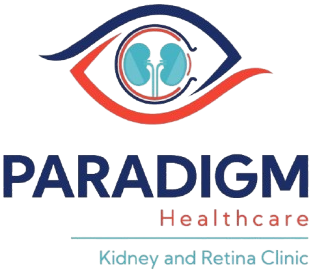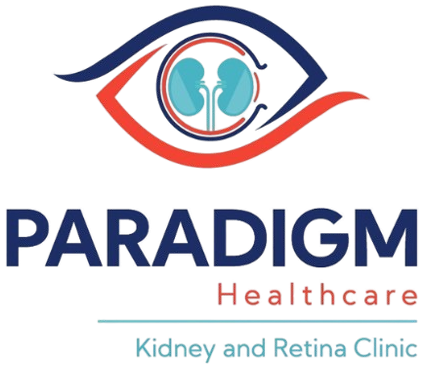The retina is a thin layer of tissue at the back of the eye that converts light into neural signals, which are then sent to the brain to create visual images. It plays a crucial role in vision by processing the light that enters the eye.
- renukachakurkar@gmail.com
- Paradigm Healthcare: 102-103, Florence Pride, Sun Pharma Rd, Vadodara, Gujarat 390020
- 6352673383
FAQ's
- Home
- Faq’s
Frequently Asked Question
-
What is the retina, and why is it important?
-
What are common retinal disorders?
Common retinal disorders include: Retinal Detachment: When the retina separates from its underlying tissue. Macular Degeneration: A condition that affects the macula, leading to central vision loss. Diabetic Retinopathy: Damage to the retina caused by diabetes. Retinal Vein Occlusion: Blockage of the veins carrying blood away from the retina. Retinitis Pigmentosa: A group of genetic disorders that lead to retinal degeneration.
-
What are the symptoms of retinal problems?
Symptoms may include: Sudden loss of vision or blurred vision. The appearance of floaters or flashes of light. A curtain-like shadow over your vision. Difficulty seeing in low light conditions.
-
Can retinal disorders be prevented?
While not all retinal disorders can be prevented, certain measures can reduce risk: Regular Eye Examinations: To detect problems early. Managing Chronic Conditions: Keeping diabetes and hypertension under control. Healthy Lifestyle: Including a balanced diet rich in antioxidants and regular exercise.
-
When should I see a retina specialist?
You should see a retina specialist if you experience symptoms such as sudden vision changes, persistent floaters, flashes of light, or any significant change in your vision. Early intervention is key to effective treatment and preserving vision.
-
How are retinal disorders diagnosed?
Diagnosis typically involves a comprehensive eye examination, which may include: Dilated Eye Exam: To view the retina in detail. OCT (Optical Coherence Tomography): To obtain cross-sectional images of the retina. Fluorescein Angiography: To examine blood flow in the retina. Ultrasound: To assess the retina and surrounding structures.
-
How often should I have my eyes examined?
For individuals at risk or those with existing retinal conditions, regular eye exams are essential. Generally, adults should have a comprehensive eye exam every 1-2 years, but your eye care provider may recommend more frequent visits based on your health and risk factors.

Visit Vadodara’s top-rated eye hospital, renowned for its expert care and cutting-edge treatments.
